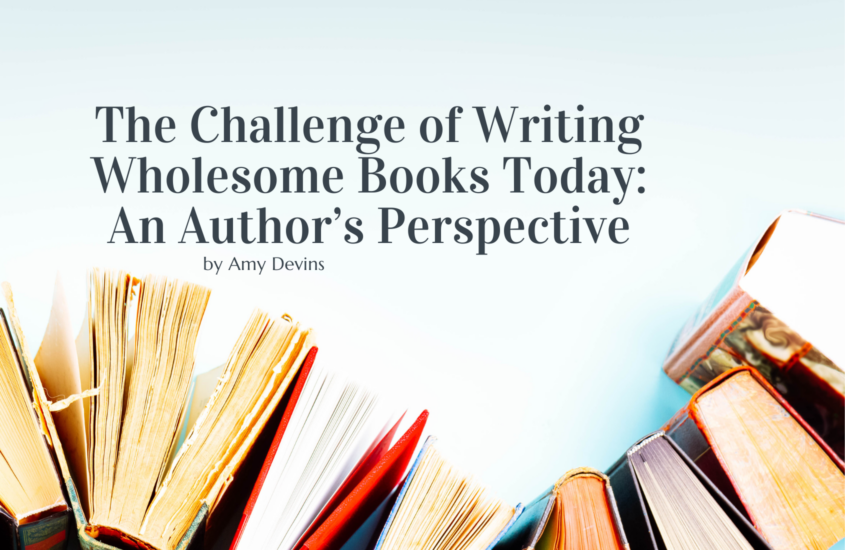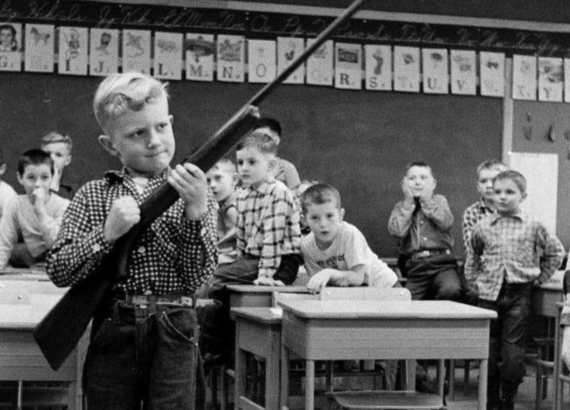The Challenge of Writing Wholesome Books Today: An Author’s Perspective
Amy Devins |
The world of books was once considered a solitary one, symbolized by quiet libraries, cozy bookshops, shy bookworms and introverted authors. However, that world is no longer exempt from this era of noise, banter and scandal. It has suddenly become the center of attention as the nation battles with which books belong on bookshelves.
My family is a book-reading, book-loving, even book-obsessed one, so the recent debate over books for young people quickly caught my attention. The objective of this article isn’t to take any political side, but I do want to expose how these current debates, if taken too far, can—and are—discouraging writers from creating their most authentic work, starting with my own personal experience.
It all began when I was writing my first novel, Emmy and the Iris. This “Fanciful French Twist on A Secret Garden” is a modern adaption of the original written by Frances Hodgson Burnett in 1911, a comforting story that I’ve loved since childhood.
It would be a great story to adapt to a new place in time and space, I thought. My travels in France had inspired a beautiful setting that could (almost) do justice to the original. I also loved its messages: the healing power of nature, childhood innocence, family bonds, grief and personal transformation. The world within it is therapeutic for any age group. I was excited to create a story that would maintain these good values but also be relatable for my daughter in her own era and her French-American heritage.
As I began to write, the public debate about Youth Adult Fiction became widespread, and a question began to nag me each time I sat down to add a chapter: if I wanted it to get published, and then reach the largest audience possible, it would have to come off as “modern”. Would that mean it would have to match the newest trends for young adult literature, even if they clashed with the values I wanted to communicate?
I started to feel hesitant, beginning with the very book I chose to rewrite. The Secret Garden has had its own share of controversy and even has a history of being banned. With that in mind, I wondered if certain audiences who had heard of the controversies surrounding The Secret Garden would even bother picking up my book if it referred to the original in the subtitle.
I also hesitated over including a theme that I considered a beautiful one: the importance of spending time with your children. I personally experienced my fair share of resistance and criticism when I gave up a “great” job to stay home with my child. Therefore, I wanted my character’s choice to give up a successful, high-earning career (twice) to be stand out. I didn’t want to delete it just to please the venerated idea in society that women must strive to maintain a high-earning career after childbirth to remain fulfilled (even if they can afford to stay at home).
In a similar vein, the main character Emmy is happier in the simple, forsaken fields and gardens on the grounds than in the luxury of the castle, which goes against the ideas that so many young people are exposed to in certain books and media today: the idea that happiness is to be found in the accumulation of expensive items, unhealthy romantic relationships and rebellious experiences that impress others but don’t lead to personal contentment.
I also wondered if portraying the experiences of diverse groups of people in my book would backfire if readers discovered that I wasn’t part of that group, as has been the case for several “cancelled” authors in recent years. Finally, the idea that the plot needs neither sex nor violence to be driven forward goes against a current trend in which Young Adult literature is becoming more and more mature.
On days where I let these hesitations take hold, I rewrote passages to fit what I thought might be more acceptable to a wider audience. I deleted some paragraphs. I added others. The writing got clunky and stilted because suddenly, it wasn’t coming from me—it was coming from my future readers that I had imagined to be so far removed from the word “wholesome”. It came from a place of pleasing those readers, instead of from my original intention: share stories with my daughter in books that correspond with the innocence of her childhood.
I modified the rewritten paragraphs again. I reinstated the ideas of “traditional” motherhood. I deleted descriptions that didn’t match what I had originally imagined for my fictitious world and characters. It flowed again, and I could see it going from my heart to hers.
Most authors want just that—to write from their heart to yours about what they’ve experienced or imagined, as they’ve experienced or imagined it, without worrying about their words being deformed, taken out of context, over-interpreted or misinterpreted in the context of current events. In writing my book, I was faced with a choice, just like so many authors: to either write from fear of judgement, or from the heart. I believe that by allowing all authors to do the latter, we won’t shut the door on those who aspire to creativity.
When the book was published, my satisfaction confirmed that I had made the right choices, and I am inspired as ever to continue to write about the worlds I imagine, as I imagine them. They may not be “modern” enough, or “trendy” enough and I may never get the widespread audience and accolades that I had once dreamed of as a naïve young writer. Nevertheless, I won’t stop filling my daughter’s bookshelf with my own books, perfectly tailored to the values I want to teach her, and I will continue to support other authors with similar convictions. Whether in reading, writing or child-rearing, what is good comes not from fear but from the truth in one’s heart.






